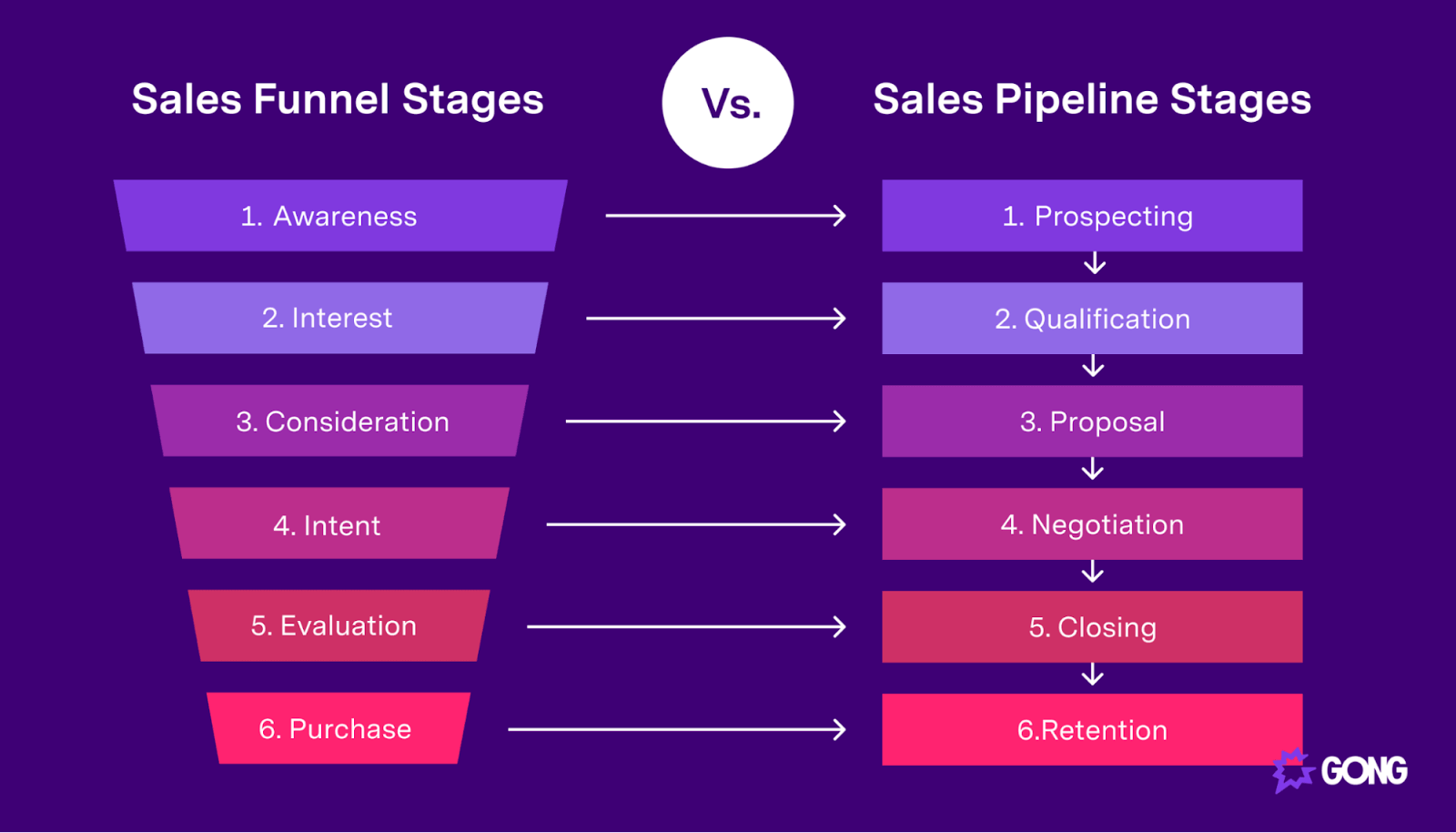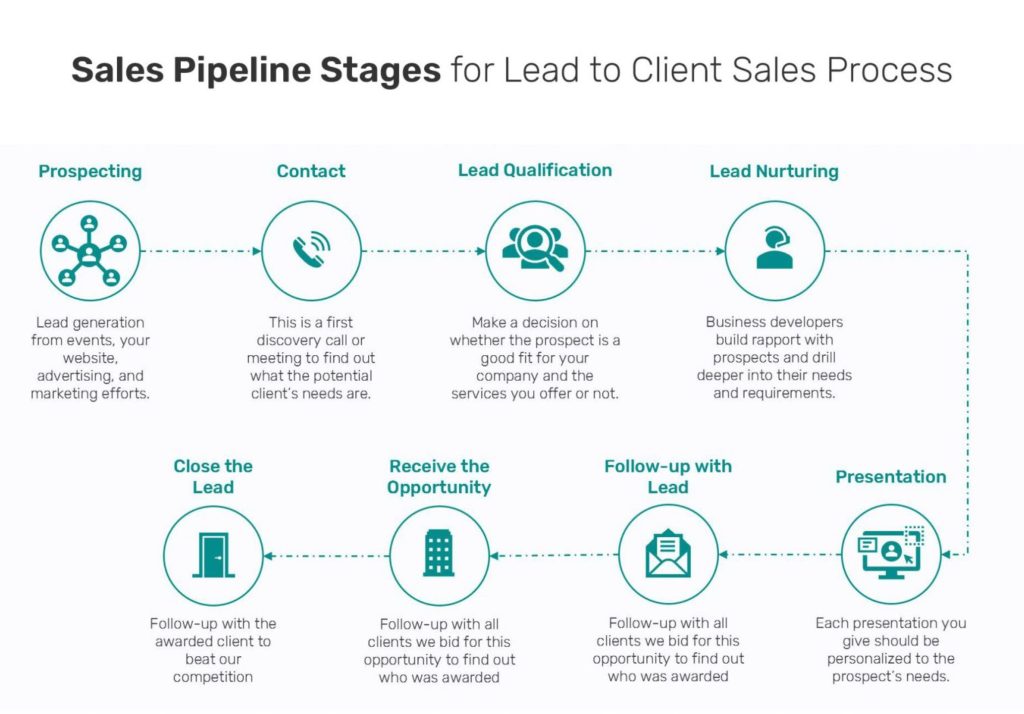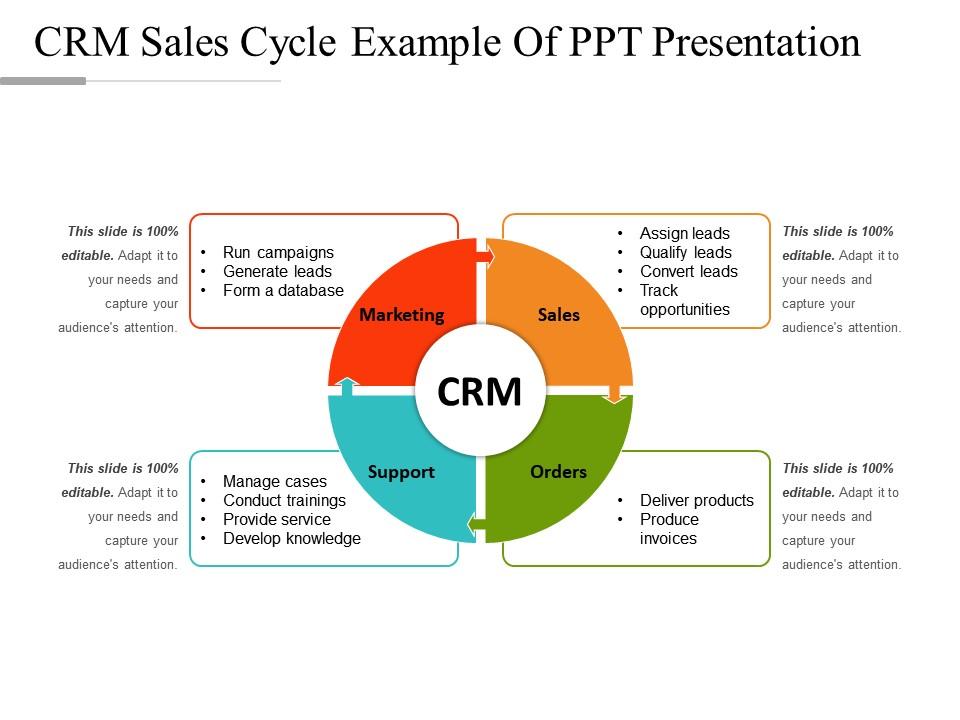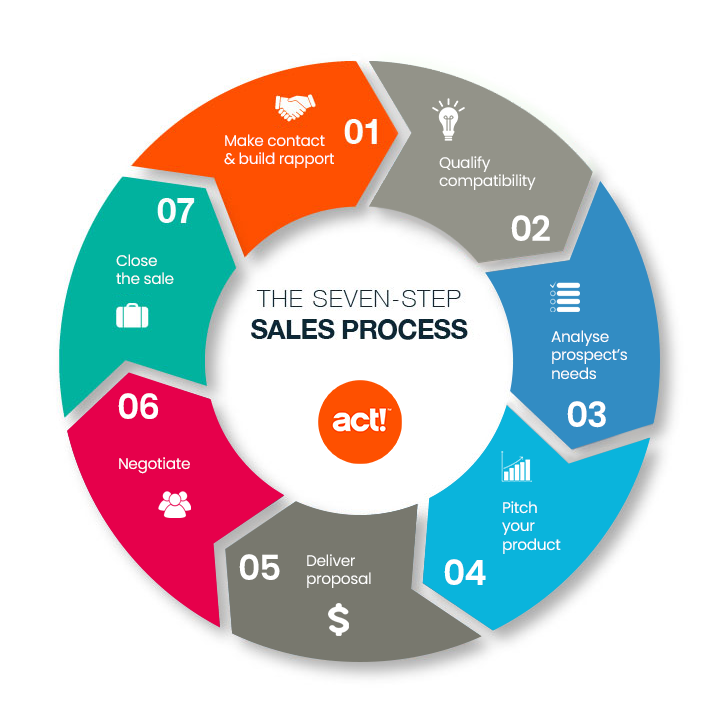Delving into the realm of CRM sales stages, this guide unlocks the secrets to optimizing your sales process, empowering you with a comprehensive understanding of each stage and its significance. Prepare to embark on a journey that will transform your sales strategy and drive your business towards unprecedented success.
Throughout this exploration, we will delve into the intricacies of common CRM sales stages, unravel the benefits of customization and adaptation, and uncover best practices for managing these stages effectively. By integrating CRM sales stages with other systems, analyzing data to gain valuable insights, and embracing automation for enhanced efficiency, you will gain a competitive edge that sets your sales team apart.
Definition and Overview
CRM sales stages are a framework that defines the various steps involved in a sales process. They provide a structured approach to guide salespeople through the process, from initial contact with a prospect to closing a deal. Each stage represents a specific phase in the buyer’s journey, and sales teams use them to track progress, measure performance, and identify opportunities for improvement.
CRM sales stages are crucial for effective sales management. They help align sales efforts, ensure consistency in the sales process, and provide a clear roadmap for salespeople to follow. By defining and adhering to these stages, businesses can improve their sales performance, increase conversion rates, and build stronger relationships with customers.
Importance of CRM Sales Stages
- Provide a structured framework for the sales process.
- Guide salespeople through the buyer’s journey.
- Track progress and measure performance.
- Identify opportunities for improvement.
- Align sales efforts and ensure consistency.
- Improve sales performance and increase conversion rates.
- Build stronger relationships with customers.
Common CRM Sales Stages
Customer relationship management (CRM) sales stages are a series of steps that a sales team follows to move a prospect from initial contact to closed sale. These stages help sales teams track progress, identify opportunities, and improve their sales process.
The specific stages in a CRM sales process can vary depending on the industry and company, but some common stages include:
Prospecting
Prospecting is the process of identifying and qualifying potential customers. This can be done through a variety of methods, such as cold calling, email marketing, or social media. The goal of prospecting is to generate a list of qualified leads who are interested in your product or service.
Qualifying
Qualifying is the process of determining whether a lead is a good fit for your product or service. This involves asking questions to learn more about the lead’s needs, budget, and timeline. The goal of qualifying is to identify leads who are most likely to convert into customers.
Nurturing
Nurturing is the process of building relationships with leads and moving them through the sales process. This can be done through a variety of methods, such as email marketing, content marketing, or webinars. The goal of nurturing is to keep leads engaged and interested in your product or service.
Closing
Closing is the process of getting a lead to make a purchase. This can be done through a variety of methods, such as sales presentations, demos, or negotiations. The goal of closing is to convert a lead into a paying customer.
Customization and Adaptation

Customizing CRM sales stages is a powerful way to tailor your sales process to the specific needs of your business. By aligning your stages with your unique selling process, you can improve efficiency, increase visibility, and close more deals.
To customize your CRM sales stages, start by understanding your sales process. What are the key steps that your sales team takes to close a deal? Once you have a clear understanding of your process, you can map it to the stages in your CRM.
It is also important to tailor your stages to the specific products or services that you sell.
Benefits of Customization
- Improved efficiency: A customized sales process can help your sales team to be more efficient by providing them with a clear roadmap to follow.
- Increased visibility: Customized sales stages can give you a clear view of where your deals are in the sales process, which can help you to identify bottlenecks and make necessary adjustments.
- Closed more deals: A well-customized sales process can help you to close more deals by providing your sales team with the tools and resources they need to succeed.
Best Practices for Managing Sales Stages

Effective management of CRM sales stages is crucial for optimizing sales performance and achieving business goals. Here are some best practices to consider:
Regularly review and refine sales stages: Sales processes and customer needs evolve over time. Regularly assess the effectiveness of your sales stages and make adjustments as needed to ensure alignment with current market dynamics.
Tracking Progress, Crm sales stages
- Establish clear metrics: Define specific metrics to track progress through each sales stage. This could include lead conversion rates, sales cycle length, and revenue generated.
- Use dashboards and reports: Leverage CRM dashboards and reports to visualize and monitor progress against targets. This enables timely identification of bottlenecks and areas for improvement.
Optimizing Performance
- Automate tasks: Leverage CRM automation tools to streamline repetitive tasks, such as lead assignment, email follow-ups, and opportunity management. This frees up sales reps to focus on high-value activities.
- Provide training and support: Ensure sales teams are adequately trained on the CRM system and sales processes. Ongoing support and guidance help reps navigate sales stages effectively.
Integration with Other Systems
Integrating CRM sales stages with other business systems is crucial for a comprehensive and streamlined workflow. It allows for seamless data exchange and automation of processes, enhancing overall efficiency and productivity.
Integration benefits include:
- Centralized Data:Integration eliminates data silos, ensuring a single source of truth for customer information.
- Automated Processes:Integration automates tasks like lead generation, appointment scheduling, and invoice creation, freeing up sales teams for higher-value activities.
- Improved Collaboration:Integration fosters collaboration between sales, marketing, and customer service teams, providing a shared view of customer interactions.
Challenges of integration include:
- Data Compatibility:Ensuring data compatibility between different systems can be complex and time-consuming.
- Cost and Complexity:Integration projects can be expensive and require significant technical expertise.
- Security Concerns:Integration can introduce new security risks, requiring careful planning and implementation.
Data Analysis and Reporting

CRM systems provide valuable data that can be used to analyze sales performance and identify areas for improvement. By tracking key metrics and generating reports, businesses can gain insights into their sales processes and make data-driven decisions.
Key metrics to analyze include:
- Sales revenue
- Sales volume
- Average sales cycle length
- Customer acquisition cost
- Customer lifetime value
Reports that can be generated include:
- Sales pipeline reports
- Sales forecast reports
- Sales performance reports
- Customer churn reports
By analyzing CRM data, businesses can identify trends, patterns, and outliers that can help them optimize their sales processes and improve performance.
Automation and Efficiency

Automation plays a pivotal role in enhancing the efficiency of CRM sales stages. By automating repetitive tasks, sales teams can streamline their processes, save time, and focus on higher-value activities.
Examples of automated tasks in CRM sales stages include:
- Lead qualification:Automating the process of qualifying leads based on predefined criteria, such as industry, company size, and job title.
- Task assignment:Automatically assigning leads to the appropriate sales representatives based on their expertise or workload.
- Email scheduling:Automating the sending of follow-up emails to leads and customers at predetermined intervals.
- Sales pipeline management:Automating the movement of leads through different sales stages based on their status and interactions.
These automated tasks can significantly improve efficiency by reducing manual effort, eliminating errors, and ensuring timely follow-ups. As a result, sales teams can increase their productivity, close deals faster, and improve overall sales performance.
Mobile Optimization
In today’s mobile-first world, optimizing your CRM sales stages for mobile devices is essential for maximizing productivity and staying competitive. By ensuring your CRM is accessible and user-friendly on smartphones and tablets, you can empower your sales team to manage their pipelines, close deals, and provide excellent customer service on the go.
To effectively design and implement mobile-friendly CRM sales stages, consider the following guidance:
User Interface
- Use a responsive design that automatically adjusts to different screen sizes and orientations.
- Prioritize essential information and functionality, ensuring a clutter-free and intuitive interface.
- Employ large touch targets and clear navigation elements for easy access and interaction.
Data Access and Synchronization
- Provide real-time access to critical data, such as customer profiles, sales pipelines, and activity history.
- Enable seamless synchronization between mobile and desktop devices, ensuring data consistency and accessibility.
- Consider offline capabilities to allow sales reps to access and update data even when internet connectivity is limited.
Customization and Flexibility
- Allow sales reps to customize their mobile CRM experience based on their individual preferences and workflows.
- Provide configurable dashboards and reports that can be tailored to specific roles and responsibilities.
- Enable integration with other mobile apps and tools to enhance productivity and streamline processes.
Emerging Trends and Innovations
The landscape of CRM sales stage management is constantly evolving, driven by technological advancements and changing customer expectations. Several emerging trends and innovations are shaping the future of sales:
Artificial Intelligence (AI)
AI is transforming sales stage management by automating tasks, providing insights, and improving decision-making. AI-powered tools can analyze customer data, identify sales opportunities, and predict customer behavior. This enables sales teams to focus on high-value activities and make more informed decisions throughout the sales cycle.
Predictive Analytics
Predictive analytics uses historical data and machine learning algorithms to forecast future sales outcomes. This helps sales teams prioritize prospects, allocate resources effectively, and identify potential risks. Predictive analytics can also provide insights into customer churn and customer lifetime value, allowing sales teams to develop targeted retention strategies.
Sales Automation
Sales automation tools streamline and automate repetitive tasks such as scheduling appointments, sending emails, and generating reports. This frees up sales reps to focus on building relationships with customers and closing deals. Sales automation can also improve data accuracy and compliance with sales processes.
Mobile Optimization
With the increasing use of smartphones and tablets, mobile optimization is becoming crucial for CRM sales stage management. Mobile-friendly CRM apps allow sales reps to access customer information, track progress, and close deals on the go. This flexibility and accessibility can significantly improve sales productivity.
Personalization
Customers expect personalized experiences throughout their interactions with businesses. CRM systems are integrating personalization features that enable sales teams to tailor their communication and offerings based on individual customer preferences, behavior, and history. This can lead to increased customer engagement and loyalty.
Final Review: Crm Sales Stages
In conclusion, mastering CRM sales stages is not merely a technical exercise; it’s an art form that requires a blend of strategy, customization, and continuous optimization. By implementing the insights and best practices Artikeld in this guide, you will transform your sales pipeline into a well-oiled machine, propelling your business to new heights of success.
Embrace the power of CRM sales stages and witness the remarkable impact it has on your sales performance.
FAQ Insights
What is the purpose of CRM sales stages?
CRM sales stages provide a structured framework for managing the sales process, enabling sales teams to track progress, identify bottlenecks, and optimize their strategies.
How can I customize CRM sales stages to suit my business needs?
Customization allows you to tailor sales stages to reflect your unique sales process, ensuring that they align with your specific products, services, and target market.
What are the key metrics for analyzing CRM sales stage performance?
Conversion rates, average sales cycle length, and revenue generated at each stage are crucial metrics for evaluating sales stage effectiveness and identifying areas for improvement.
